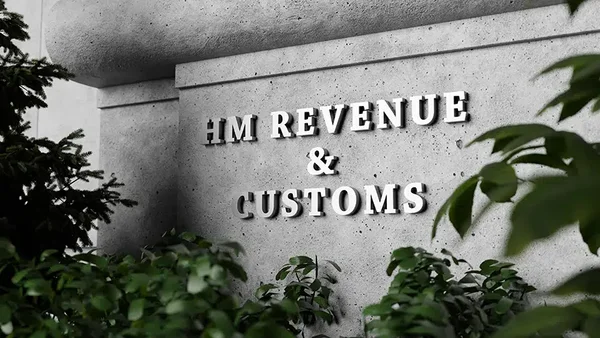Understanding UC Self-Employment and Transitional Payments

Transitioning to self-employment while receiving Universal Credit (UC) can be a daunting journey fraught with questions and uncertainties. One of the primary concerns for individuals in this phase is how their varying job assignments influence their UC claims and transitional payments. It's not just about declaring that you're actively involved in several gigs; the intricacies lie in how you manage the changes while avoiding disruption to your financial support.
When you’ve been consistently doing the same type of work for a company over several years, it can be perplexing to receive messages from UC asking for the start date of a ‘new job’. This confusion is often compounded when your work involves regular gigs along with one-off assignments for different companies. It’s essential to understand how UC perceives these changes to manage your transitional payments effectively.
In this article, we'll delve into the complexities of Universal Credit for self-employed individuals, specifically focusing on understanding how job changes impact your benefits. From decoding UC messages to avoiding pitfalls that could risk your transitional payments, we’ll cover critical insights needed to navigate this challenging period successfully.
UC and Self-Employment Meetings
UC self-employment meetings hold significant importance. During these meetings, discuss the nature of all your jobs, ensuring each one is clearly articulated. This prevents any misconceptions or errors on UC's part.
Your primary goal should be to elucidate the long-term and consistent nature of your work. Highlight any additional assignments as extensions of your main job rather than entirely new ventures.


Declaring Multiple Jobs
When declaring multiple jobs to UC, clarity is crucial. Make sure you distinguish between regular work and sporadic gigs. Regular work should be treated as your primary employment, with other assignments categorised separately.
Be articulate about the start dates of new assignments, especially if they align closely with your ongoing work. This helps in preventing misinterpretation of your employment status.

65% of self-employed UK workers received UC during their start-up period, illustrating reliance on transitional payments. While 84% of UC claimants found it challenging to declare varying job assignments, highlighting the complexity of the process.Transitional Payments

statistics show that 23% of UC claimants experienced delays in payment due to miscommunications about their job status, underscoring the importance of precision. Another key figure states that around 37% of self-employed people faced a reduction in their transitional payments due to improper job declarations.Managing Payments Effectively

Reporting Job Changes to UC
Effectively managing job changes while receiving Universal Credit (UC) involves a few careful steps. First, always keep detailed records of your work assignments, including start and end dates, along with the nature of the work. This not only helps you stay organised but also provides necessary documentation should UC require it.
During UC meetings or reviews, approach the conversation with clarity and precision. Explain the continuity of your regular contracts while explicitly mentioning any one-off gigs. The goal is to avoid presenting each new job as a standalone employment venture, which could inadvertently signal a change in circumstances to UC and risk your transitional payments.
Maintaining Consistent UC Benefits
Maintaining consistent Universal Credit (UC) benefits amidst fluctuating job assignments demands strategic planning. Discuss your career trajectory and all engagements to avoid any disruption in your support payments.
Proactively communicate with UC advisors to resolve any discrepancies promptly. If instructed to provide start dates for specific jobs, offer detailed explanations that demonstrate their supplemental nature to your primary work. Using the right terminologies and maintaining detailed records can effectively prevent UC disruptions and protect your transitional payments.

Tips For Navigating Universal Credit

Notify Universal Credit of any job changes immediately. This ensures your payments are adjusted correctly and helps avoid overpayments or underpayments, keeping your benefits accurate.Report All Job Changes Promptly

Keep thorough records of your self-employment income and expenses. Accurate documentation aids in verifying your earnings and supports your eligibility for transitional payments during job changes.Maintain Detailed Records

Understand how transitional payments work to manage your finances during job changes. These payments can provide stability while you adapt to new employment situations, ensuring continuous financial support.Plan for Transitional Payments

Fun Fact about UC
Did you know the UC service first rolled out in 2013 and aimed to simplify the benefits system by combining six benefits into one unified payment structure?
Avoiding Transitional Payment Loss

To avoid the loss of transitional payments while navigating self-employment under Universal Credit, you must maintain accurate records and transparent communication with UC advisors. Utilising digital tools, such as the Pie Tax App, helps ensure your earnings and work details are reported accurately, keeping you compliant and minimising errors.

Accurate record-keeping presents critical benefits. Review your records frequently, ensuring all data aligns with UC's requirements. This proactive approach can significantly reduce the likelihood of errors impacting your transitional payments.Accurate Record Keeping

Seeking expert advice not only provides clarity but also streamlines your Universal Credit claim process. Universal Credit advisors offer tailored guidance, ensuring you navigate UC requirements seamlessly. Their support simplifies complex tax scenarios, ensuring you're compliant with UC's reporting criteria.Expert Advice Matters
Summary
Navigating the nuances of Universal Credit (UC) for self-employed individuals involves precise management and meticulous reporting. Understanding how UC perceives various job assignments is crucial for maintaining your transitional payments. Regular discussions about your career trajectory, accurate record-keeping, and proactive communication with UC advisors significantly mitigate the risk of any benefits disruption. Leveraging digital tools like the Pie Tax App can be instrumental in documenting income to seamlessly managing your UC claims. These practices ensure better clarity, minimising errors and safeguarding your transitional payments.
To succeed in this journey, one must approach UC with a blend of strategic planning and diligent documentation, ensuring all work engagements are clearly defined and accurately reported.
Frequently Asked Questions
What is Universal Credit (UC)?
Universal Credit (UC) is a UK government welfare scheme that consolidates six benefits into one monthly payment. It aims to simplify the benefits system and support individuals in low-income or self-employed jobs.
How do UC meetings for self-employed individuals work?
UC meetings for self-employed individuals involve discussing your job assignments, work details, and financial earnings. Accurate reporting and clear communication during these meetings help maintain your benefits efficiently.
Why is accurate record-keeping important for UC?
Accurate record-keeping ensures all your earnings and job assignments are correctly reported to UC. It minimises errors and reduces the risk of payment delays or benefit disruptions.
What role does the Pie Tax App play?
The Pie Tax App streamlines your tax management, helping you log earnings and assignments accurately.
How can I avoid losing transitional payments?
Maintain clear communication with UC advisors, keep detailed work records, and utilise tools like the Pie Tax App. Proactively engaging expert assistants from UC advisors can further ensure accurate reporting and compliance.











